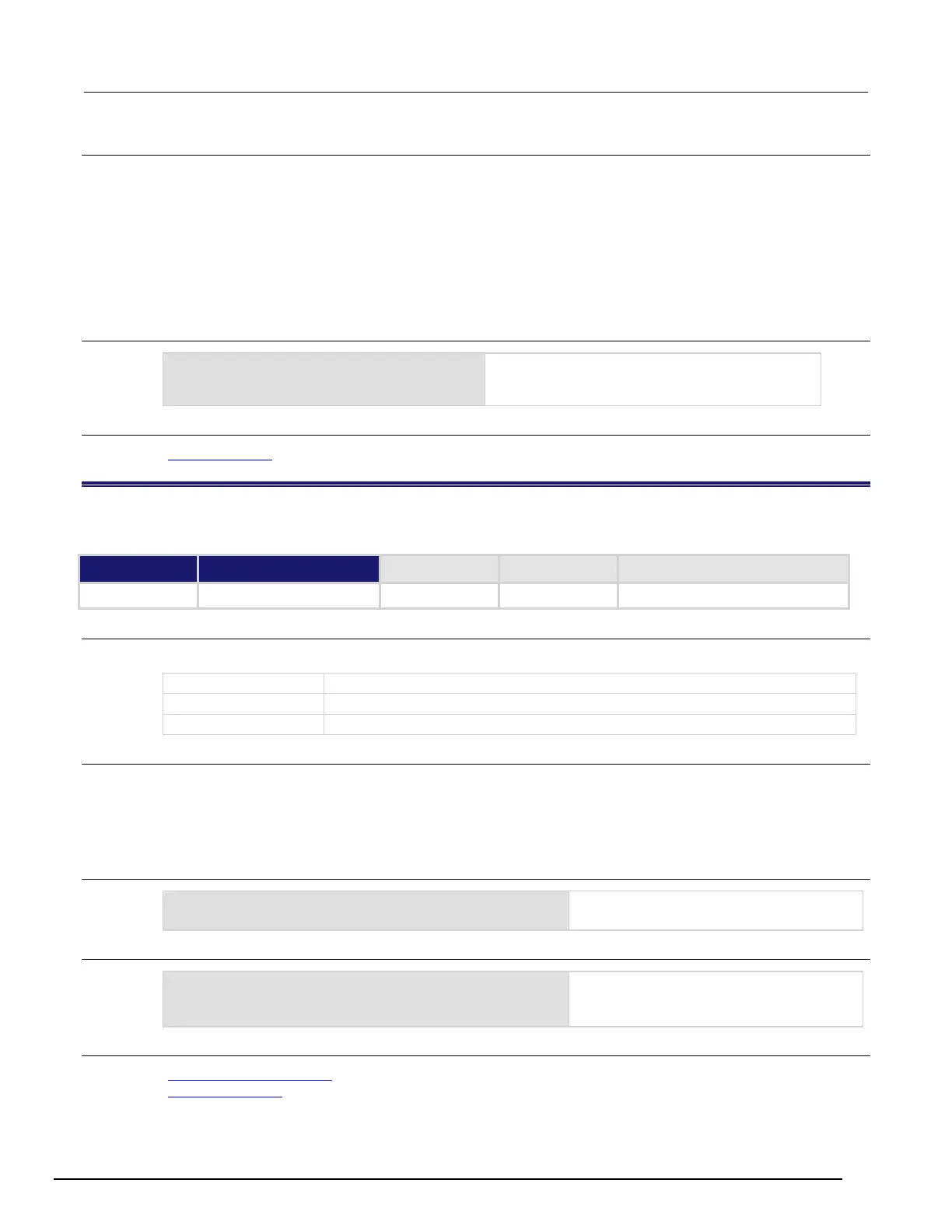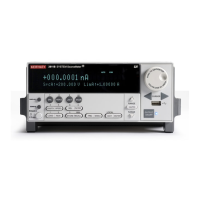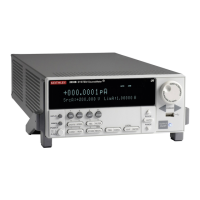System SourceMeter® Instrument Reference Manual Section 7:
2600BS-901-01 Rev. B / May 2013 7-161
Details
The reset() command in its simplest form resets the entire TSP-enabled system, including the controlling node
and all subordinate nodes.
If you want to reset a specific instrument, use either the localnode.reset() or node[X].reset()
command. Use the localnode.reset() command for the local instrument. Use the node[X].reset()
command to reset an instrument on a subordinate node.
When no value is specified for system, the default value is true.
You can only reset the entire system using reset(true) if the node is the master. If the node is not the master
node, executing this command generates an error.
Example
If the node is the master node, the entire system is
reset; if the node is not the master node, an error is
Also see
localnode.reset() (on page 7-143)
savebuffer()
This KISavebuffer factory script function saves a specified reading buffer as either a .CSV file or an .XML file.
Type TSP-Link accessible
Affected by Where saved Default value
Usage
savebuffer(buffer, formatType, fileName)
The reading buffer to save
A string indicating which file type to use: .csv or .xml
The file name of the saved buffer
Details
Use this function to save the specified buffer to a USB flash drive.
This function will only save to a USB flash drive.
You are not required to qualify the path to the USB flash drive, but if you wish to, add /usb1/ before the
fileName (see Example 2).
Example 1
savebuffer(smua.nvbuffer1, "csv",
"mybuffer.csv")
Save smua dedicated reading buffer 1 as a
.CSV file named
.
Example 2
savebuffer(smua.nvbuffer1, "csv",
"/usb1/mybuffer.csv")
Save smua dedicated reading buffer 1 to an
installed USB flash drive as a .CSV file
Also see
KISavebuffer factory script (on page 5-23)
smuX.savebuffer() (on page 7-216)
